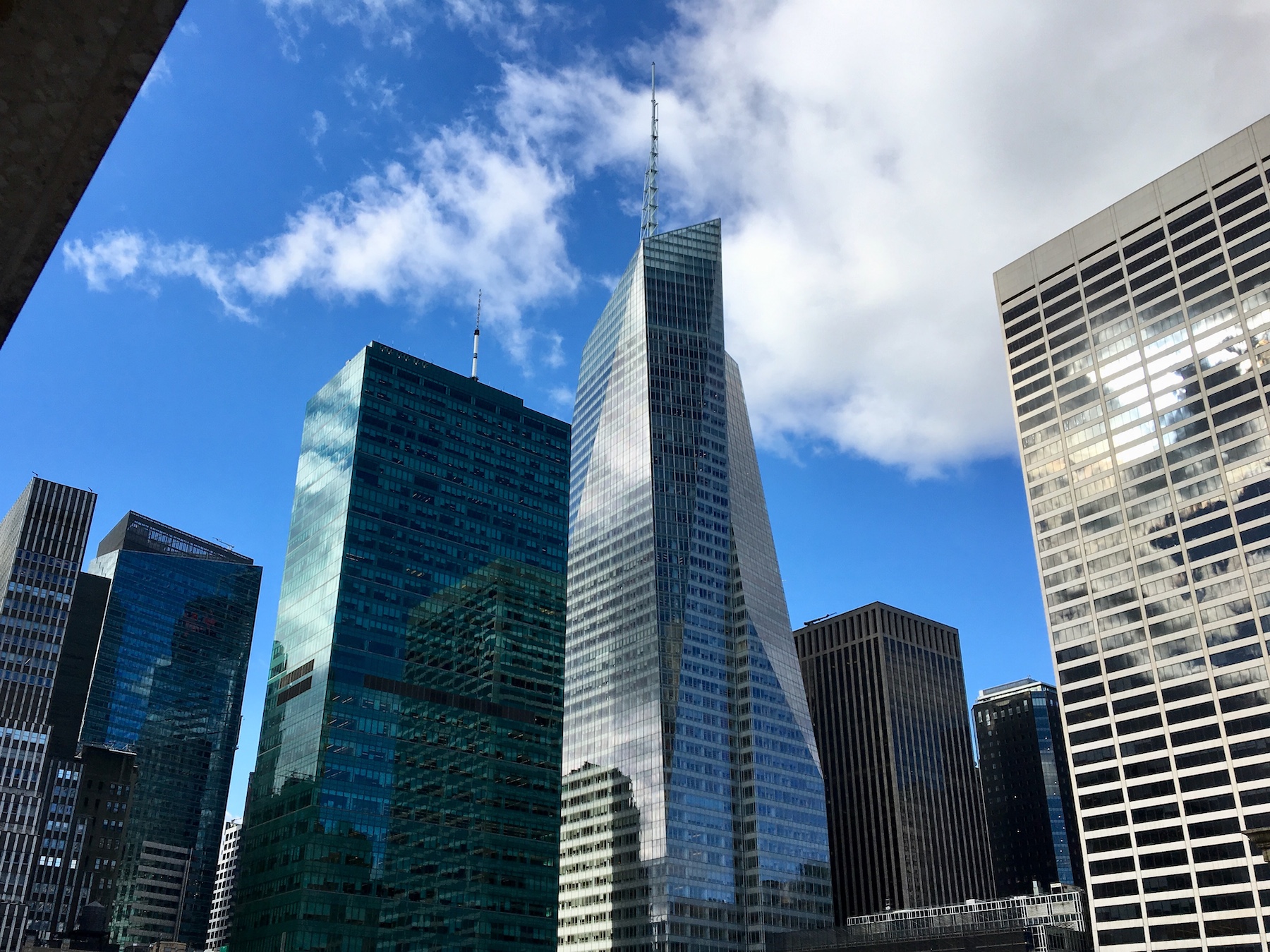One Bryant Park, also known as the Bank of America Tower, in Manhattan faces an estimated $2.4 million in annual fines when New York City’s York’s Local Law 97 goes into effect.
The potential hefty levy on this property is ironic given that it was certified LEED Platinum after it opened in 2010. An in-depth article at Bloomberg.com about this predicament illustrates the complexities owners face in addressing the law, which imposes carbon caps that are backed up by fines for non-compliance.
Passed in 2019, the law is a sweeping measure establishing emissions limits for almost 50,000 of the city’s largest buildings. The owners of an estimated 20% of these office buildings, hotels, and multifamily properties will likely face fines in 2024 when the law goes into effect. Many more buildings would face fines in 2030, when the caps will be lowered by 40%.
Part of the issue for the Bank of America Tower is a density of employees with heavy computer usage—at least on some floors—that use a lot of electricity. The owner says Local Law 97 is deeply flawed because it doesn’t distinguish between different densities and usages of properties and points out that the terms of the lease with the bank preclude him from limiting their power usage.
The Bank of America Tower had some impressive green features when it was built: a natural gas-fueled cogeneration plant for electricity that uses heat from the combustion process for additional power to operate HVAC systems, a cooling system that uses ice made overnight when power demand is lower, and a green roof. Today, when the ultimate goal is carbon neutrality, though, these features do not create the desired impact.
The details of the law are still being worked out, though, and that may bode well for the owner. There is support from some city officials to make allowances for buildings such as the Bank of America Tower that time their energy use.
Related Stories
Legislation | Aug 8, 2022
Inflation Reduction Act includes over $5 billion for low carbon procurement
The Inflation Reduction Act of 2022, recently passed by the U.S. Senate, sets aside over $5 billion for low carbon procurement in the built environment.
Legislation | Aug 5, 2022
D.C. City Council moves to require net-zero construction by 2026
The Washington, D.C. City Council unanimously passed legislation that would require all new buildings and substantial renovations in D.C. to be net-zero construction by 2026.
| Aug 4, 2022
Newer materials for green, resilient building complicate insurance underwriting
Insurers can’t look to years of testing on emerging technology to assess risk.
Codes and Standards | Aug 3, 2022
Some climate models underestimate risk of future floods
Commonly used climate models may be significantly underestimating the risk of floods this century, according to a new study by Yale researchers.
Codes and Standards | Aug 2, 2022
New tools help LEED projects reach health goals
The U.S. Green Building Council now offers tools to support the LEED Integrative Process for Health Promotion (IPHP) pilot credit.
Codes and Standards | Jul 29, 2022
Few projects and properties are being built beyond code
Clients and architects disagree on how well building to code provides resilience, according to a recent report by the American Institute of Architects (AIA) in partnership with Owens Corning.
Multifamily Housing | Jul 28, 2022
GM working to make EV charging accessible to multifamily residents
General Motors, envisioning a future where electric vehicles will be commonplace, is working to boost charging infrastructure for those who live in multifamily residences.
Codes and Standards | Jul 22, 2022
Office developers aim for zero carbon without offsets
As companies reassess their office needs in the wake of the pandemic, a new arms race to deliver net zero carbon space without the need for offsets is taking place in London, according to a recent Bloomberg report.
Codes and Standards | Jul 22, 2022
Hurricane-resistant construction may be greatly undervalued
New research led by an MIT graduate student at the school’s Concrete Sustainability Hub suggests that the value of buildings constructed to resist wind damage in hurricanes may be significantly underestimated.
Building Team | Jul 20, 2022
San Francisco overtakes Tokyo as the world’s most expensive city for construction
San Francisco has overtaken Tokyo as the world’s most expensive city for construction, according to a new report from Turner & Townsend.

















